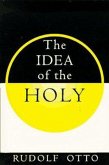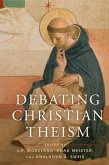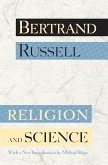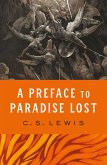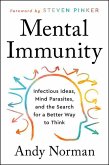Michael Peterson (Professor of Professor of Philosophy of Religion, William Hasker (Dis Distinguished Professor Emeritus of Philosophy, Bruce Reichenbach (Professor Emer Professor Emeritus of Philosophy
Reason & Religious Belief
An Introduction to the Philosophy of Religion
Michael Peterson (Professor of Professor of Philosophy of Religion, William Hasker (Dis Distinguished Professor Emeritus of Philosophy, Bruce Reichenbach (Professor Emer Professor Emeritus of Philosophy
Reason & Religious Belief
An Introduction to the Philosophy of Religion
- Broschiertes Buch
- Merkliste
- Auf die Merkliste
- Bewerten Bewerten
- Teilen
- Produkt teilen
- Produkterinnerung
- Produkterinnerung
Reason and Religious Belief, now in its fifth edition, explores perennial questions in the philosophy of religion. Drawing from the best in both classical and contemporary discussions, the authors examine religious experience.
Andere Kunden interessierten sich auch für
![The Idea of the Holy The Idea of the Holy]() Rudolf OttoThe Idea of the Holy25,99 €
Rudolf OttoThe Idea of the Holy25,99 €![Debating Christian Theism Debating Christian Theism]() Debating Christian Theism50,99 €
Debating Christian Theism50,99 €![Religion and Science (Revised) Religion and Science (Revised)]() Bertrand RussellReligion and Science (Revised)24,99 €
Bertrand RussellReligion and Science (Revised)24,99 €![The Essential Rumi - Reissue The Essential Rumi - Reissue]() Coleman BarksThe Essential Rumi - Reissue29,99 €
Coleman BarksThe Essential Rumi - Reissue29,99 €![A Preface to Paradise Lost A Preface to Paradise Lost]() C. S. LewisA Preface to Paradise Lost13,99 €
C. S. LewisA Preface to Paradise Lost13,99 €![Mental Immunity Mental Immunity]() Andy NormanMental Immunity25,99 €
Andy NormanMental Immunity25,99 €![Light in the Darkness Light in the Darkness]() Heino FalckeLight in the Darkness25,99 €
Heino FalckeLight in the Darkness25,99 €-
-
-
Reason and Religious Belief, now in its fifth edition, explores perennial questions in the philosophy of religion. Drawing from the best in both classical and contemporary discussions, the authors examine religious experience.
Hinweis: Dieser Artikel kann nur an eine deutsche Lieferadresse ausgeliefert werden.
Hinweis: Dieser Artikel kann nur an eine deutsche Lieferadresse ausgeliefert werden.
Produktdetails
- Produktdetails
- Verlag: Oxford University Press Inc
- 5 Revised edition
- Seitenzahl: 416
- Erscheinungstermin: 29. November 2012
- Englisch
- Abmessung: 234mm x 158mm x 15mm
- Gewicht: 640g
- ISBN-13: 9780199946570
- ISBN-10: 0199946574
- Artikelnr.: 36330438
- Herstellerkennzeichnung
- Libri GmbH
- Europaallee 1
- 36244 Bad Hersfeld
- 06621 890
- Verlag: Oxford University Press Inc
- 5 Revised edition
- Seitenzahl: 416
- Erscheinungstermin: 29. November 2012
- Englisch
- Abmessung: 234mm x 158mm x 15mm
- Gewicht: 640g
- ISBN-13: 9780199946570
- ISBN-10: 0199946574
- Artikelnr.: 36330438
- Herstellerkennzeichnung
- Libri GmbH
- Europaallee 1
- 36244 Bad Hersfeld
- 06621 890
Preface to the Fifth Edition
Introduction
1. Thinking about God: The Search for the Divine
Defining Religion
What Is Philosophy of Religion?
The God of Theism
The Religious Ambiguity of Life
Our Task
2. The Nature of Religion: What Are Religious Beliefs About?
Religious Non-realism
Buddhist Non-realism
Religious Realism
Wittgenstein on Religion
Why Is This Issue Important?
3. Religious Experience: What Does It Mean to Encounter the Divine?
Types of Religious Experience
Religious Experience as Feeling
Some Religious Experience as Perceptual Experience
Religious Experience as Interpretation Based on Religious Beliefs
Can Religious Experience Justify Religious Belief?
The Principle of Credulity
Diversity of Religious Experiences
Is There a Common Core to Religious Experience?
4. Faith and Reason: How Are They Related?
Can Reason Be Trusted?
Strong Rationalism
Fideism
Critical Rationalism
5. Theistic Arguments: What Is the Evidence for God's Existence?
Theistic Arguments as Proofs
The Ontological Argument
Contemporary Versions of the Ontological Argument
The Cosmological Argument
The Kalam Cosmological Argument
The Atemporal Cosmological Argument
The Analogical Teleological Argument
The Anthropic Teleological Argument
The Intelligent Design Teleological Argument
The Moral Argument
Cumulative Case Arguments and God
The God of Religion and of Philosophy
6. Knowing God without Arguments: Does Theism Need a Basis?
Evidentialism
Critique of Evidentialism
Plantinga on Properly Basic Beliefs
Alston on Perceiving God
Plantinga on Warrant and Knowledge
7. The Divine Attributes: What is God Like?
Perfect and Worthy of Worship
Necessary and Self-Existent
Personal and Free Creator
All-Powerful, All-Knowing, and Perfectly Good
God Eternal--Timeless or Everlasting
8. Divine Action: How Does God Relate to the World?
What Kind of Power Does God Exercise?
What Kind of Freedom Has God Given?
Does God Know What Would Have Happened?
Does God Know the Actual Future?
What If the Future Is Truly Open?
9. The Problem of Evil: What Is the Evidence against God's Existence?
The Logical Problem of Evil
The Evidential Problem of Evil
Skeptical Theism and Other Approaches
Can Theists Accept the Factual Premise?
Defense and Theodicy
Themes in Theodicy
Some Important Global Theodicies
Horrendous Evils and the Assessment of Theism
10. Miracles: Does God Intervene in Earthly Affairs?
Miracles Defined
Miracles as Historical Events
Miracles as Unexplainable Events
Miracles as Acts of God
Practical Considerations
11. Life after Death: Are There Reasons for Hope?
Terminology
Concepts of Life after Death
Personal Identity and the Soul
Immortality of the Soul
Criticism of the Soul-Concept
The Self as a Psychophysical Unity
Re-creation and Spatio-temporal Continuity
There is No Persisting Self
A Posteriori Arguments for Life after Death
A Priori Arguments for Life after Death
Prospects
12. Religious Language: How Can We Speak Meaningfully of God?
Human Language and the Infinite
The Classical Theory of Analogy
Verification and Falsification Issues
The Functions of Religious Discourse
Religious Language as Symbolic
Feminism and Masculine God-Talk
Can Talk of God Be Literal?
13. Religion and Science: Are They Compatible or Incompatible?
Do Religion and Science Conflict?
Are Religion and Science Independent?
Is Dialogue Possible?
Attempts at Integration
Theistic Evolution and the Science-Religion Debate
Insights
14. Religious Diversity: How Can We Understand Differences among Religions?
Religious Diversity
Exclusivism
Critique of Exclusivism
Exclusivism and Justified Belief
Pluralism
Critique of Pluralism
Pluralism as Plurality of Salvations
Inclusivism
Critique of Inclusivism
Criteria for Assessing Religions
15. Religious Ethics: How Is God Related to Morality?
The Source of Religious Ethical Truth
The Authoritative Basis of Religious Ethical Truth
The Acquisition of Religiously Based Ethical Truth
The Significance of Religiously Based Ethical Truth
Current Issues
16. The Continuing Quest: God and the Human Venture
The Intellectual Process
Philosophical Activity and Religious Faith
Where Do We Go from Here?
Introduction
1. Thinking about God: The Search for the Divine
Defining Religion
What Is Philosophy of Religion?
The God of Theism
The Religious Ambiguity of Life
Our Task
2. The Nature of Religion: What Are Religious Beliefs About?
Religious Non-realism
Buddhist Non-realism
Religious Realism
Wittgenstein on Religion
Why Is This Issue Important?
3. Religious Experience: What Does It Mean to Encounter the Divine?
Types of Religious Experience
Religious Experience as Feeling
Some Religious Experience as Perceptual Experience
Religious Experience as Interpretation Based on Religious Beliefs
Can Religious Experience Justify Religious Belief?
The Principle of Credulity
Diversity of Religious Experiences
Is There a Common Core to Religious Experience?
4. Faith and Reason: How Are They Related?
Can Reason Be Trusted?
Strong Rationalism
Fideism
Critical Rationalism
5. Theistic Arguments: What Is the Evidence for God's Existence?
Theistic Arguments as Proofs
The Ontological Argument
Contemporary Versions of the Ontological Argument
The Cosmological Argument
The Kalam Cosmological Argument
The Atemporal Cosmological Argument
The Analogical Teleological Argument
The Anthropic Teleological Argument
The Intelligent Design Teleological Argument
The Moral Argument
Cumulative Case Arguments and God
The God of Religion and of Philosophy
6. Knowing God without Arguments: Does Theism Need a Basis?
Evidentialism
Critique of Evidentialism
Plantinga on Properly Basic Beliefs
Alston on Perceiving God
Plantinga on Warrant and Knowledge
7. The Divine Attributes: What is God Like?
Perfect and Worthy of Worship
Necessary and Self-Existent
Personal and Free Creator
All-Powerful, All-Knowing, and Perfectly Good
God Eternal--Timeless or Everlasting
8. Divine Action: How Does God Relate to the World?
What Kind of Power Does God Exercise?
What Kind of Freedom Has God Given?
Does God Know What Would Have Happened?
Does God Know the Actual Future?
What If the Future Is Truly Open?
9. The Problem of Evil: What Is the Evidence against God's Existence?
The Logical Problem of Evil
The Evidential Problem of Evil
Skeptical Theism and Other Approaches
Can Theists Accept the Factual Premise?
Defense and Theodicy
Themes in Theodicy
Some Important Global Theodicies
Horrendous Evils and the Assessment of Theism
10. Miracles: Does God Intervene in Earthly Affairs?
Miracles Defined
Miracles as Historical Events
Miracles as Unexplainable Events
Miracles as Acts of God
Practical Considerations
11. Life after Death: Are There Reasons for Hope?
Terminology
Concepts of Life after Death
Personal Identity and the Soul
Immortality of the Soul
Criticism of the Soul-Concept
The Self as a Psychophysical Unity
Re-creation and Spatio-temporal Continuity
There is No Persisting Self
A Posteriori Arguments for Life after Death
A Priori Arguments for Life after Death
Prospects
12. Religious Language: How Can We Speak Meaningfully of God?
Human Language and the Infinite
The Classical Theory of Analogy
Verification and Falsification Issues
The Functions of Religious Discourse
Religious Language as Symbolic
Feminism and Masculine God-Talk
Can Talk of God Be Literal?
13. Religion and Science: Are They Compatible or Incompatible?
Do Religion and Science Conflict?
Are Religion and Science Independent?
Is Dialogue Possible?
Attempts at Integration
Theistic Evolution and the Science-Religion Debate
Insights
14. Religious Diversity: How Can We Understand Differences among Religions?
Religious Diversity
Exclusivism
Critique of Exclusivism
Exclusivism and Justified Belief
Pluralism
Critique of Pluralism
Pluralism as Plurality of Salvations
Inclusivism
Critique of Inclusivism
Criteria for Assessing Religions
15. Religious Ethics: How Is God Related to Morality?
The Source of Religious Ethical Truth
The Authoritative Basis of Religious Ethical Truth
The Acquisition of Religiously Based Ethical Truth
The Significance of Religiously Based Ethical Truth
Current Issues
16. The Continuing Quest: God and the Human Venture
The Intellectual Process
Philosophical Activity and Religious Faith
Where Do We Go from Here?
Preface to the Fifth Edition
Introduction
1. Thinking about God: The Search for the Divine
Defining Religion
What Is Philosophy of Religion?
The God of Theism
The Religious Ambiguity of Life
Our Task
2. The Nature of Religion: What Are Religious Beliefs About?
Religious Non-realism
Buddhist Non-realism
Religious Realism
Wittgenstein on Religion
Why Is This Issue Important?
3. Religious Experience: What Does It Mean to Encounter the Divine?
Types of Religious Experience
Religious Experience as Feeling
Some Religious Experience as Perceptual Experience
Religious Experience as Interpretation Based on Religious Beliefs
Can Religious Experience Justify Religious Belief?
The Principle of Credulity
Diversity of Religious Experiences
Is There a Common Core to Religious Experience?
4. Faith and Reason: How Are They Related?
Can Reason Be Trusted?
Strong Rationalism
Fideism
Critical Rationalism
5. Theistic Arguments: What Is the Evidence for God's Existence?
Theistic Arguments as Proofs
The Ontological Argument
Contemporary Versions of the Ontological Argument
The Cosmological Argument
The Kalam Cosmological Argument
The Atemporal Cosmological Argument
The Analogical Teleological Argument
The Anthropic Teleological Argument
The Intelligent Design Teleological Argument
The Moral Argument
Cumulative Case Arguments and God
The God of Religion and of Philosophy
6. Knowing God without Arguments: Does Theism Need a Basis?
Evidentialism
Critique of Evidentialism
Plantinga on Properly Basic Beliefs
Alston on Perceiving God
Plantinga on Warrant and Knowledge
7. The Divine Attributes: What is God Like?
Perfect and Worthy of Worship
Necessary and Self-Existent
Personal and Free Creator
All-Powerful, All-Knowing, and Perfectly Good
God Eternal--Timeless or Everlasting
8. Divine Action: How Does God Relate to the World?
What Kind of Power Does God Exercise?
What Kind of Freedom Has God Given?
Does God Know What Would Have Happened?
Does God Know the Actual Future?
What If the Future Is Truly Open?
9. The Problem of Evil: What Is the Evidence against God's Existence?
The Logical Problem of Evil
The Evidential Problem of Evil
Skeptical Theism and Other Approaches
Can Theists Accept the Factual Premise?
Defense and Theodicy
Themes in Theodicy
Some Important Global Theodicies
Horrendous Evils and the Assessment of Theism
10. Miracles: Does God Intervene in Earthly Affairs?
Miracles Defined
Miracles as Historical Events
Miracles as Unexplainable Events
Miracles as Acts of God
Practical Considerations
11. Life after Death: Are There Reasons for Hope?
Terminology
Concepts of Life after Death
Personal Identity and the Soul
Immortality of the Soul
Criticism of the Soul-Concept
The Self as a Psychophysical Unity
Re-creation and Spatio-temporal Continuity
There is No Persisting Self
A Posteriori Arguments for Life after Death
A Priori Arguments for Life after Death
Prospects
12. Religious Language: How Can We Speak Meaningfully of God?
Human Language and the Infinite
The Classical Theory of Analogy
Verification and Falsification Issues
The Functions of Religious Discourse
Religious Language as Symbolic
Feminism and Masculine God-Talk
Can Talk of God Be Literal?
13. Religion and Science: Are They Compatible or Incompatible?
Do Religion and Science Conflict?
Are Religion and Science Independent?
Is Dialogue Possible?
Attempts at Integration
Theistic Evolution and the Science-Religion Debate
Insights
14. Religious Diversity: How Can We Understand Differences among Religions?
Religious Diversity
Exclusivism
Critique of Exclusivism
Exclusivism and Justified Belief
Pluralism
Critique of Pluralism
Pluralism as Plurality of Salvations
Inclusivism
Critique of Inclusivism
Criteria for Assessing Religions
15. Religious Ethics: How Is God Related to Morality?
The Source of Religious Ethical Truth
The Authoritative Basis of Religious Ethical Truth
The Acquisition of Religiously Based Ethical Truth
The Significance of Religiously Based Ethical Truth
Current Issues
16. The Continuing Quest: God and the Human Venture
The Intellectual Process
Philosophical Activity and Religious Faith
Where Do We Go from Here?
Introduction
1. Thinking about God: The Search for the Divine
Defining Religion
What Is Philosophy of Religion?
The God of Theism
The Religious Ambiguity of Life
Our Task
2. The Nature of Religion: What Are Religious Beliefs About?
Religious Non-realism
Buddhist Non-realism
Religious Realism
Wittgenstein on Religion
Why Is This Issue Important?
3. Religious Experience: What Does It Mean to Encounter the Divine?
Types of Religious Experience
Religious Experience as Feeling
Some Religious Experience as Perceptual Experience
Religious Experience as Interpretation Based on Religious Beliefs
Can Religious Experience Justify Religious Belief?
The Principle of Credulity
Diversity of Religious Experiences
Is There a Common Core to Religious Experience?
4. Faith and Reason: How Are They Related?
Can Reason Be Trusted?
Strong Rationalism
Fideism
Critical Rationalism
5. Theistic Arguments: What Is the Evidence for God's Existence?
Theistic Arguments as Proofs
The Ontological Argument
Contemporary Versions of the Ontological Argument
The Cosmological Argument
The Kalam Cosmological Argument
The Atemporal Cosmological Argument
The Analogical Teleological Argument
The Anthropic Teleological Argument
The Intelligent Design Teleological Argument
The Moral Argument
Cumulative Case Arguments and God
The God of Religion and of Philosophy
6. Knowing God without Arguments: Does Theism Need a Basis?
Evidentialism
Critique of Evidentialism
Plantinga on Properly Basic Beliefs
Alston on Perceiving God
Plantinga on Warrant and Knowledge
7. The Divine Attributes: What is God Like?
Perfect and Worthy of Worship
Necessary and Self-Existent
Personal and Free Creator
All-Powerful, All-Knowing, and Perfectly Good
God Eternal--Timeless or Everlasting
8. Divine Action: How Does God Relate to the World?
What Kind of Power Does God Exercise?
What Kind of Freedom Has God Given?
Does God Know What Would Have Happened?
Does God Know the Actual Future?
What If the Future Is Truly Open?
9. The Problem of Evil: What Is the Evidence against God's Existence?
The Logical Problem of Evil
The Evidential Problem of Evil
Skeptical Theism and Other Approaches
Can Theists Accept the Factual Premise?
Defense and Theodicy
Themes in Theodicy
Some Important Global Theodicies
Horrendous Evils and the Assessment of Theism
10. Miracles: Does God Intervene in Earthly Affairs?
Miracles Defined
Miracles as Historical Events
Miracles as Unexplainable Events
Miracles as Acts of God
Practical Considerations
11. Life after Death: Are There Reasons for Hope?
Terminology
Concepts of Life after Death
Personal Identity and the Soul
Immortality of the Soul
Criticism of the Soul-Concept
The Self as a Psychophysical Unity
Re-creation and Spatio-temporal Continuity
There is No Persisting Self
A Posteriori Arguments for Life after Death
A Priori Arguments for Life after Death
Prospects
12. Religious Language: How Can We Speak Meaningfully of God?
Human Language and the Infinite
The Classical Theory of Analogy
Verification and Falsification Issues
The Functions of Religious Discourse
Religious Language as Symbolic
Feminism and Masculine God-Talk
Can Talk of God Be Literal?
13. Religion and Science: Are They Compatible or Incompatible?
Do Religion and Science Conflict?
Are Religion and Science Independent?
Is Dialogue Possible?
Attempts at Integration
Theistic Evolution and the Science-Religion Debate
Insights
14. Religious Diversity: How Can We Understand Differences among Religions?
Religious Diversity
Exclusivism
Critique of Exclusivism
Exclusivism and Justified Belief
Pluralism
Critique of Pluralism
Pluralism as Plurality of Salvations
Inclusivism
Critique of Inclusivism
Criteria for Assessing Religions
15. Religious Ethics: How Is God Related to Morality?
The Source of Religious Ethical Truth
The Authoritative Basis of Religious Ethical Truth
The Acquisition of Religiously Based Ethical Truth
The Significance of Religiously Based Ethical Truth
Current Issues
16. The Continuing Quest: God and the Human Venture
The Intellectual Process
Philosophical Activity and Religious Faith
Where Do We Go from Here?


